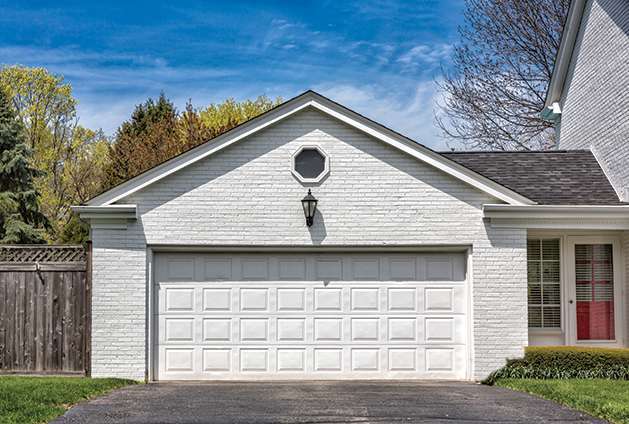
iStock.com/Marchello74
Paint expert provides tips for homeowners.
A fair amount of homeowners have given the interiors of their homes a glow-up, a redo, a transformation—call it what you will. But all that effort begs the question—now what?
Head outside, take a few steps back, and give a long, hard look at your home’s exterior. Even brick facades and fireplace chimneys can get in line for a makeover. Before you pop the paint can or hire a painting crew, Jon Nelson, store manager of Hirshfield’s in Wayzata, provides some valuable insight into painting brick.
To start, the brick should be properly cleaned. “A scrub brush, hot soapy water or possibly a ‘no-rinse’ cleaner will help you thoroughly clean the surface,” Nelson says. “It is important to let the brick fully dry after this before continuing with the project.”
Now, it’s time paint. “The first coat when painting brick should always be a primer,” Nelson says. “This will help your topcoat seal and bond properly.” He recommends using a 100 percent acrylic masonry primer and allowing it to completely dry before applying two coats of a latex topcoat. Nelson recommends Housecoat, which comes in flat and low luster sheens and can be tinted any desired color.
The Brick Industry Association (BIA) weighs in, noting that paint used on brick masonry walls should be “durable, easy to apply and have good adhesive characteristics. It should be porous if applied on exterior masonry, thereby permitting the wall to breathe and preventing the trapping of free moisture behind the paint film.”
Nelson says paint is best applied on brick with a heavier nap roller if spraying the brick is not an option. “If the brick has already been painted, I would still recommend following the above procedure even if it seems to be in good repair,” he says. “If done correctly, painted brick will last just as long as other painted surfaces.” And these recommendations can be used for chimneys, as well.
The BIA also has recommendations when it comes to new masonry. “As a general rule, new clay masonry is seldom painted. It is difficult to justify the extra expenditure for initial and future painting,” it notes. “However, if for any reason painting new masonry is desired, there are a few precautions necessary for reasonable success. Do not wash new clay masonry walls with acid cleaning solutions. Acid reactions can result in paint failures. Use alkali-resistant paints.” (This might be the time to connect with a painting professional or contractor.)
If homeowners decide to go the painted brick route, the paint color should fall within the color scheme of the rest of the home’s exterior. Consider the colors of the window and door trims, flashing, gutters and even the roof. There are, however, a few popular colors that Nelson highlights, including a dark gray like Benjamin Moore’s Iron Mountain (2134-30) or a bright white called Chantilly Lace (OC-65).
What’s the upshot of painting exterior brick? “Painting your brick can be a great way to modernize the look of your home,” Nelson says. “That being said, exposed brick is still an extremely appealing look.”
Hirshfield’s
1975 Annapolis Lane N.; 763.577.9864






















